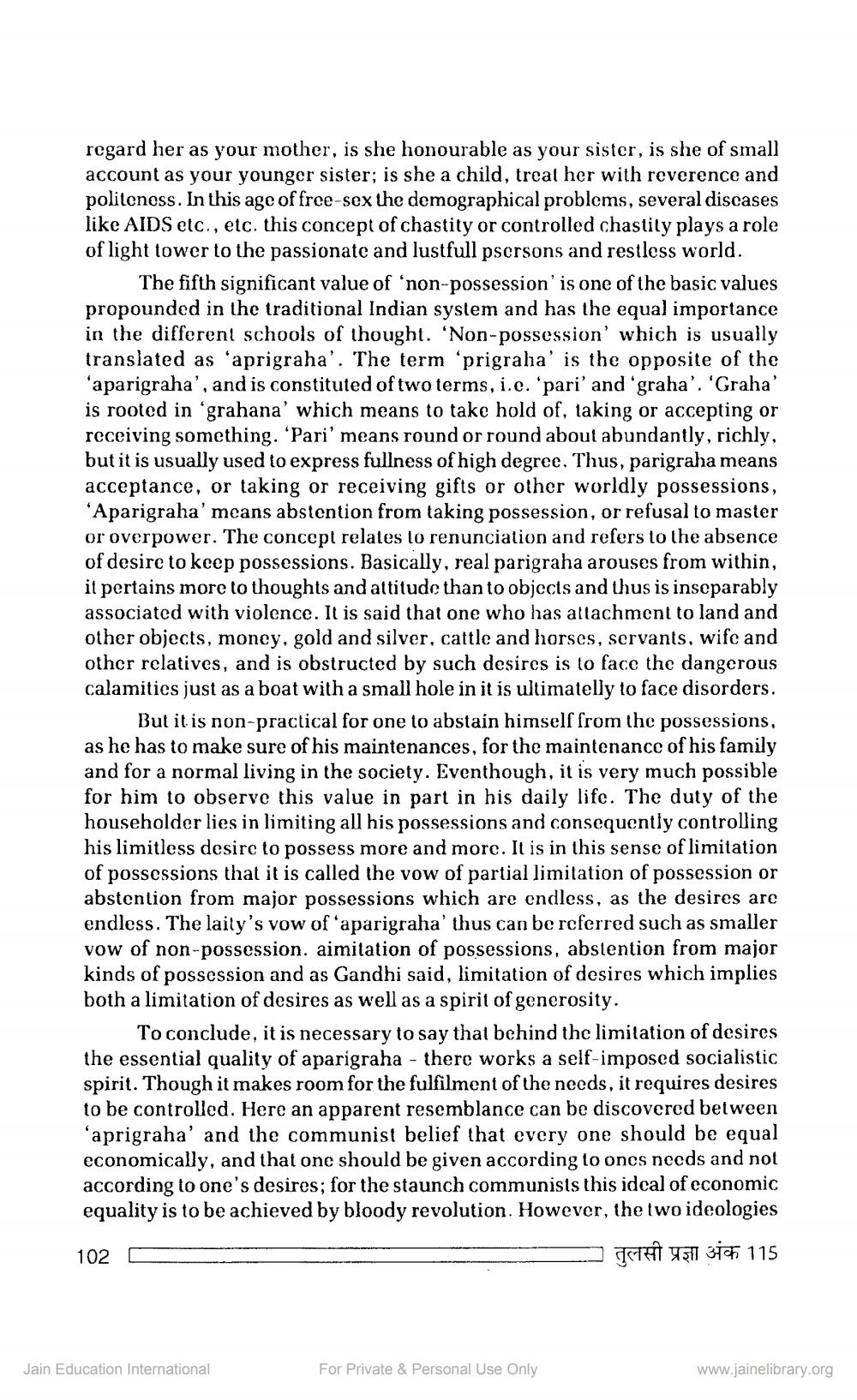________________
regard her as your mother, is she honourable as your sister, is she of small account as your younger sister; is she a child, treat her with reverence and politeness. In this age of free-sex the demographical problems, several discases like AIDS etc., etc. this concept of chastity or controlled chastity plays a role of light tower to the passionate and lustfull psersons and restless world.
The fifth significant value of 'non-possession' is one of the basic values propounded in the traditional Indian system and has the equal importance in the different schools of thought. 'Non-possession' which is usually translated as 'aprigraha'. The term 'prigraha' is the opposite of the 'aparigraha', and is constituted of two terms, i.e. 'pari' and 'graha'. 'Graha' is rooted in 'grahana' which means to take hold of, taking or accepting or receiving something. 'Pari' means round or round about abundantly, richly, but it is usually used to express fullness of high degree. Thus, parigraha means acceptance, or taking or receiving gifts or other worldly possessions, 'Aparigraha' means abstention from taking possession, or refusal to master or overpower. The concept relates to renunciation and refers to the absence of desire to keep possessions. Basically, real parigraha arouses from within, it pertains more to thoughts and attitude than to objects and thus is inseparably associated with violence. It is said that one who has attachment to land and other objects, money, gold and silver, cattle and horses, servants, wife and other relatives, and is obstructed by such desires is to face the dangerous calamities just as a boat with a small hole in it is ultimatelly to face disorders.
But it is non-practical for one to abstain himself from the possessions, as he has to make sure of his maintenances, for the maintenance of his family and for a normal living in the society. Eventhough, it is very much possible for him to observe this value in part in his daily life. The duty of the householder lies in limiting all his possessions and consequently controlling his limitless desire to possess more and more. It is in this sense of limitation of possessions that it is called the vow of partial limitation of possession or abstention from major possessions which are endless, as the desires are endless. The laity's vow of 'aparigraha' thus can be referred such as smaller vow of non-possession. aimitation of possessions, abstention from major kinds of possession and as Gandhi said, limitation of desires which implies both a limitation of desires as well as a spirit of generosity.
To conclude, it is necessary to say that behind the limitation of desires the essential quality of aparigraha - there works a self-imposed socialistic spirit. Though it makes room for the fulfilment of the needs, it requires desires to be controlled. Here an apparent resemblance can be discovered between 'aprigraha' and the communist belief that every one should be equal economically, and that one should be given according to ones needs and not according to one's desires; for the staunch communists this ideal of economic equality is to be achieved by bloody revolution. However, the two ideologies
तुलसी प्रज्ञा अंक 115
102
Jain Education International
For Private & Personal Use Only
www.jainelibrary.org




